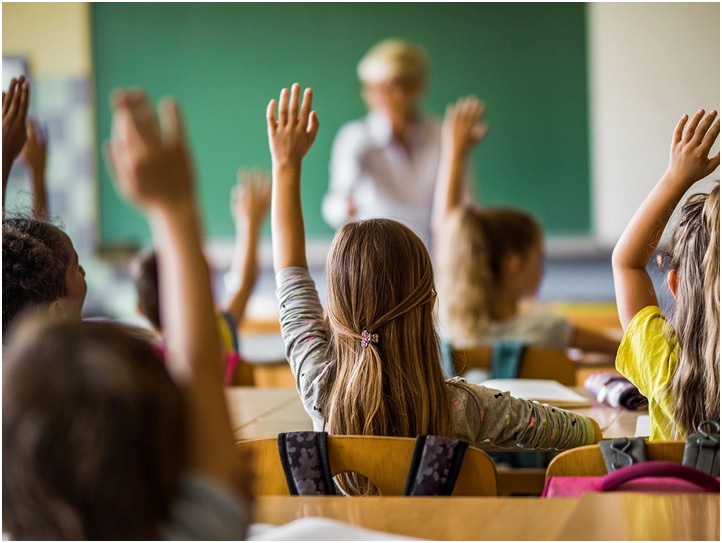Ways to Improve Discipline in School

Inculcating discipline in a student’s life is essential. Discipline contributes to the removal of roadblocks to progress and other ambiguities that obstruct day-to-day routine and the quest for a successful future. It is not only about academics but sets a tone for their entire life. Since a child spends most of their early years in school, it is where they are trained to be disciplined. Our school’s curriculum and approach are to instill discipline in our pupils to become confident and independent individuals. We associate with experts and up-to-date modern techniques to make DPS the best CBSE School in Anand
Here are some ways to improve discipline in a school:
Plan and Organize
Ensure beforehand that the classroom has a routine and a timeline so that students have an awareness of what is coming their way, and what is expected of them. Children may become fussy and mischievous in case of lousy organization and planning and order in the classroom.
Thus managing a classroom effectively is possible when the lessons are well-planned and educators have everything they need for the class ahead of time. Also, always have a backup plan in place for when things go wrong, it’s very important to be prepared for the unexpected.
Reward Good Behavior
The response given immediately after a student’s good behavior influences whether or not the behavior will occur again. Extrinsically or internally, rewards can help children adapt to proper actions. This also helps to pique their interest and increase their involvement in daily classroom chores, responsibilities, and learning. Students are motivated to be more productive by incentives that give them a sense of pride and accomplishment. It makes you glad to be successful. Every success story inspires pupils to be more self-assured. They are both proud and motivated to accomplish another successful outcome. Rewarding kids motivates and validates their efforts in school. They result in better student results.
Be fair and Optimistic
Educators should be unbiased. Unprejudiced. Its fine to have preferences, but don’t make them obvious.
When evaluating papers and tasks, educators should avoid showing favoritism. Make sure your pupils understand that their efforts and progress count and those setbacks are only a stepping stone to achievement.
Discipline also means deserving for the work put in and having realistic expectations. Keeping a cheerful attitude can help with school discipline. Students should not feel threatened in the classroom.
They must be at peace and have the opportunity to express them. In schools, there are various disciplines; nonetheless, you should focus on being fair and raising a generation that knows principles.
Resolve issues from the beginning Practice what you preach
Teachers should establish a peaceful atmosphere in the classroom for effective learning and mental growth of students. Thus, dealing with problems before they grow too big to handle should always be prioritized. They can solve every minor issue that arises in the classroom and instill an understanding of healthy and unhealthy conflicts.
Children must feel appreciated and heard; else, it may lead to behavioral issues which may further fester into a poor impact on their mental health.
Children learn by observation, thus educators and caregivers must constantly practice what they teach to avoid being labeled a hypocrite by those who look up to them.
Make classes interactive
- Make your courses more engaging.
- Students are more engaged and have less time to be naughty when you make your lessons interactive.
- Include games, quizzes, animations, visual aids, and other activities to make your lessons more exciting and engaging.
- With the different online teaching tools accessible, it is easy to combine animated films and games during online teaching.
Build connections with students
Students will be more disciplined and understanding if you establish a solid relationship with them. Mutual respect will help your classroom become more harmonious. Students only trust a teacher when there is some healthy classroom connection between them. Teachers can conduct bonding games like sharing: the best part of their day’ and the ‘worst part of their day’ kind of sharing prompts. From here on they can work up to more engaging exercises to build the trust of students altogether with them.
Conclusion
We’ve talked about various approaches to enhance classroom discipline. When we discuss how to keep school discipline in check, we mean to say that it is a two-way street that is surely guided by the educator but works in harmony with the students. Teachers do serve as role models for the pupils so they learn from them. Teachers always strive to update their methods and techniques to ensure that they are using the finest disciplinary practices in their classrooms.